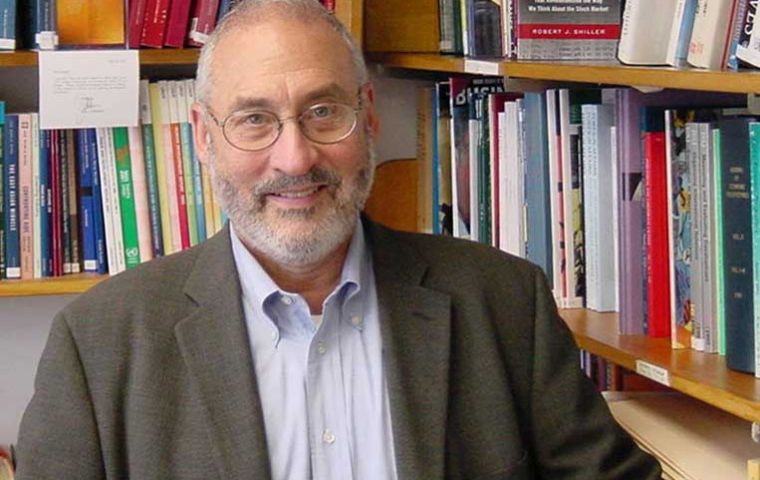MercoPress. South Atlantic News Agency
Stiglitz describes financial crisis as a “social problem”
 Stiglitz criticised Government bailouts of failing companies
Stiglitz criticised Government bailouts of failing companies Nobel laureate and renowned economist Professor Joseph Stiglitz described the current financial crisis not as a predominantly economic problem, but as a social one, citing the three million US citizens who have already lost their homes, with another two million expected to lose theirs over the next few months.
Mr. Stiglitz was in Manchester last week to deliver the University's Foundation Day Lecture and talking about "The Financial Crisis – lessons for economic theory and policy" said the current credit crunch was "inevitable", and economists "had been warning about an imminent recession for a long time", because past policies aiming to get people to buy more to keep the economy going hadn't helped. Consumers' buying too much was the original problem and when the crunch didn't happen immediately, there were only two possibilities: "either the model is wrong or economists aren't very good at timing." Comparing the situation to "giving a transfusion to a dying patient with internal bleeding, [while] not treating the haemorrhaging," Stiglitz criticised Government bailouts of failing companies as an attempt to restore confidence in the economy, rather than fixing what was wrong. "When people see so much money going down the drain, confidence will be further shaken." He also criticised encouraging people to borrow more money in a crisis by tempting them with low interest rates, which are bound to rise as they are down so far that they can't get any lower. People end up owing more money at the end of the year than they had in the beginning. "[The theory that] the more you borrow the richer you would be should have been suspect." Stiglitz concluded that the knowledge to prevent the recession from becoming a major economic downturn exists, but that the future depends on how that knowledge is used. He said: "I don't want to tell you I told you so – but I did."




Top Comments
Disclaimer & comment rulesCommenting for this story is now closed.
If you have a Facebook account, become a fan and comment on our Facebook Page!